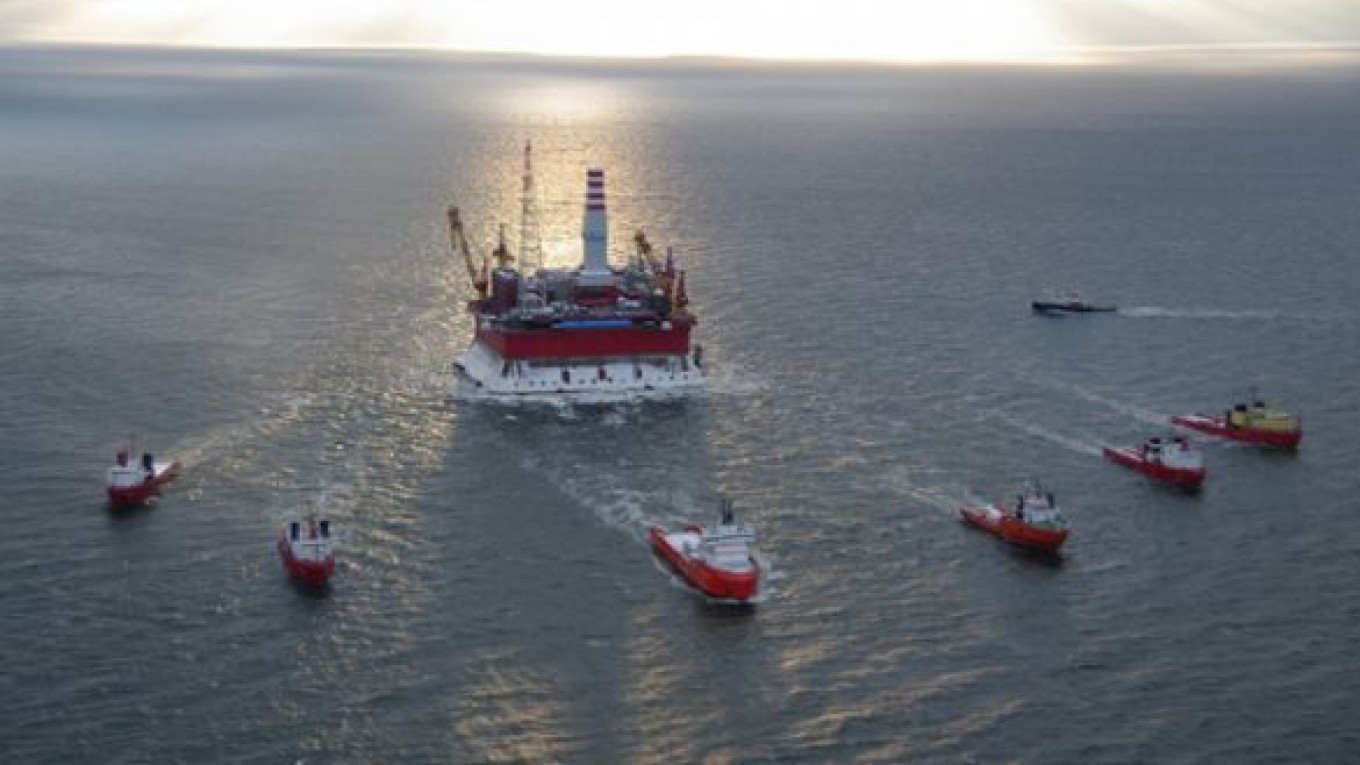From the Indian Ocean to the Sea of Japan to the Gulf of Mexico, bodies of water are often named after a country that borders them. But not the Arctic Ocean — or at least not yet.
The director of a conservative think tank wants to change that, saying it is "logical" and "just" to tack on "Russian" to the ocean's name given Russia's extensive Arctic territories, scientific contribution to the region and influence over its future.
"It's traditional to name seas and oceans after the countries that have the most influence over them," Nikolai Pavlyuk, head of the Institute for Expert Analysis, wrote in an article published Monday on the think tank's website.
But given the uncertain legal status of key parts of the Arctic Ocean, including potentially lucrative shipping routes and natural resource deposits, the proposal may be more than meets the eye.
Russia has long argued for extending its territory beyond its exclusive economic zone, which extends 200 nautical miles from a country's coastline.
In 2007, explorer Artur Chilingarov planted a Russian flag on the seabed at the North Pole during a highly publicized expedition to map the Lomonosov Ridge.
Reached by telephone, Pavlyuk denied that the think tank is government-financed or that his conclusion is connected to hopes of tapping oil and other resources under the Arctic Ocean.
Robert Ward, an official with the International Hydrographic Organization, which provides naming guidelines for nautical cartographers, said there isn't an international naming authority.
"It's essentially a matter of either agreement at the regional level or contemporary usage," he said by telephone from Monaco.
The board of directors of the Institute for Expert Analysis includes State Duma Deputy Oleg Mikheyev of A Just Russia, a former Energy Ministry official and a former Kremlin adviser.
In other articles, the first of which appeared in late April, Pavlyuk describes the U.S. Senate's Magnitsky Act, which would impose sanctions on Russian human rights abusers, as a tool for overthrowing Russia's government. And he calls on countries of the former Soviet Union to refund Russia for investments made by the Soviet government.
A Message from The Moscow Times:
Dear readers,
We are facing unprecedented challenges. Russia's Prosecutor General's Office has designated The Moscow Times as an "undesirable" organization, criminalizing our work and putting our staff at risk of prosecution. This follows our earlier unjust labeling as a "foreign agent."
These actions are direct attempts to silence independent journalism in Russia. The authorities claim our work "discredits the decisions of the Russian leadership." We see things differently: we strive to provide accurate, unbiased reporting on Russia.
We, the journalists of The Moscow Times, refuse to be silenced. But to continue our work, we need your help.
Your support, no matter how small, makes a world of difference. If you can, please support us monthly starting from just $2. It's quick to set up, and every contribution makes a significant impact.
By supporting The Moscow Times, you're defending open, independent journalism in the face of repression. Thank you for standing with us.
Remind me later.






